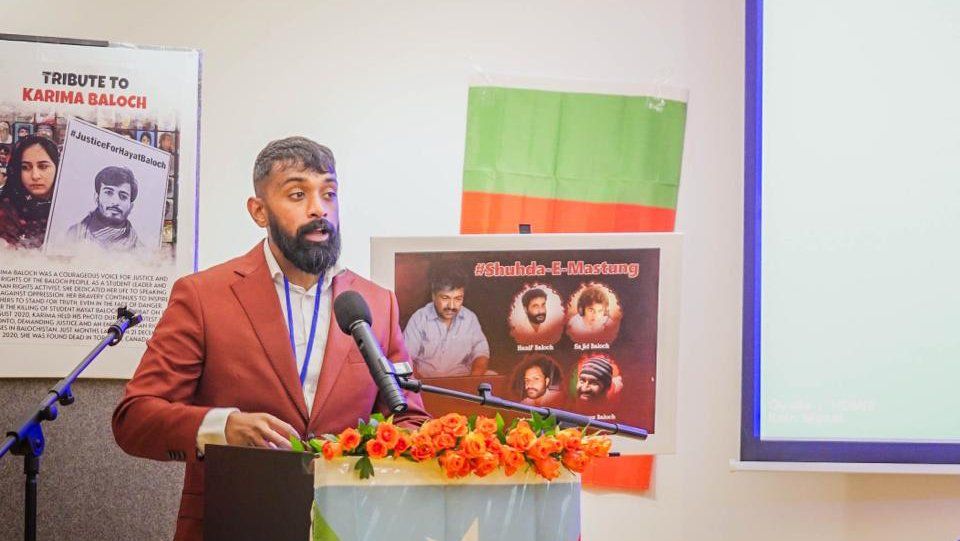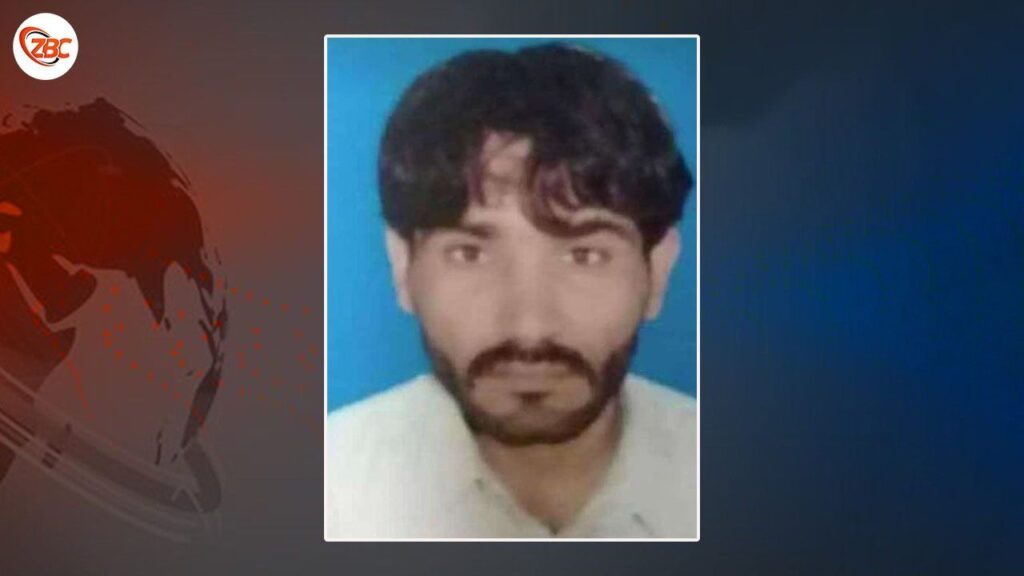
Berlin: Speaking at a seminar organized by the Baloch National Movement (BNM) on Baloch Martyrs’ Day, Tamil political activist Nivethan Nanthakumar said that despite long wars, atrocities and geographical distance, the global Tamil community remains resolute in defending its identity and pursuing its struggle for justice.
Paying tribute to the Baloch martyrs, he called the act an honor and drew parallels between the struggles of the Tamil and Baloch nations. He noted that the Tamil community also commemorates its martyrs annually on November 27, marking the sacrifice of their first martyr, Shankar, in 1982 and recalled that the Eelam Wars claimed 30,000 to 40,000 Tamil lives.
Tracing the origins of the Tamil struggle to the colonial era, Nanthakumar said that successive Portuguese, Dutch, and British administrations marginalized Tamils by merging the island into a single administrative unit, creating a minority status. Post-independence, he explained, discriminatory policies including stripping citizenship from around one million Tamils, imposing Sinhala as the sole official language in 1956, and restricting university admissions in 1971 fueled tensions.
He highlighted decades of anti-Tamil violence, including riots in 1956, 1958 and 1977 and the 1981 burning of the Jaffna Public Library, which destroyed invaluable Tamil cultural heritage. By 1976, frustrated by failed peaceful negotiations, Tamils passed the Vaddukoddai Resolution, demanding an independent Tamil Eelam, which escalated into the Eelam Wars (1983–2009). He noted that India initially supported Tamil guerrilla groups but later intervened to disarm them, and that the LTTE established effective control over Tamil areas before being militarily crushed with global support after 9/11.
Speaking on the post-war period, he pointed to large-scale human rights violations, the deaths or disappearances of over 160,000 people, the confiscation of Tamil lands for Sinhalese settlements, and the lack of justice for war crimes. He also highlighted China’s growing influence in Sri Lanka, including the long-term lease of Hambantota Port.
Concluding his address, Nanthakumar said that the 2022 economic crisis and the rise of leftist Sinhalese leaders have not changed the state’s approach to the Tamil issue. He praised the Tamil diaspora for sustaining identity and struggle, emphasizing that their efforts continue to play a vital role in keeping the Tamil cause alive globally.


